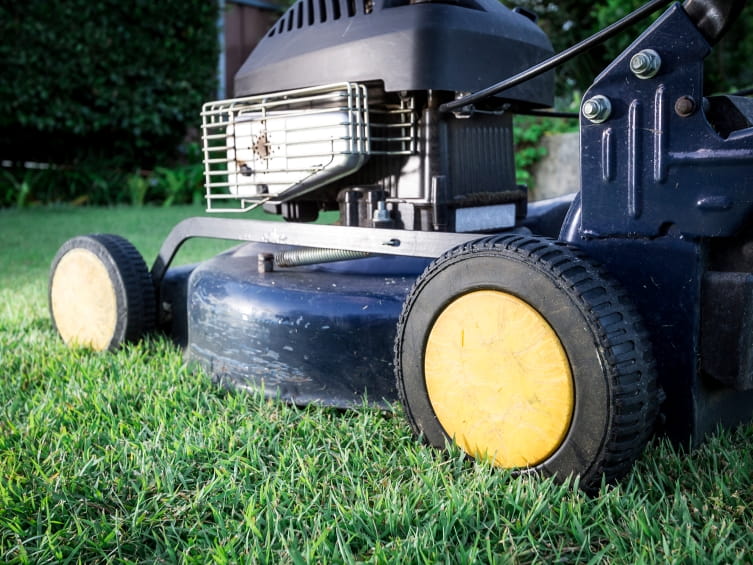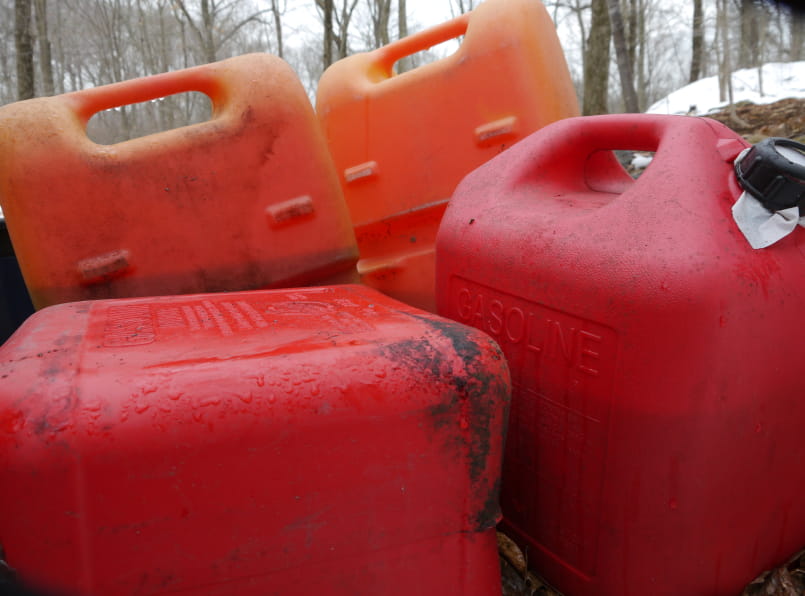Siphoning Gasoline Gasoline Siphoning Can Cause Pneumonia

The Bottom Line
Siphoning gasoline can lead to aspiration, gasoline entering the lungs. This can cause pneumonia, coma, and death.

The Full Story
Poison Control can always tell when lawn-mowing season is over. How? By the number of people who siphon gasoline out of their lawn mowers - and don't stop in time.
People who think they can safely siphon gasoline often find out otherwise. It is easy to cough or choke if gasoline enters your mouth. When that happens, gas can go down the "wrong way" - into your lungs. Only a tiny amount of gasoline is enough to cause serious damage.
When gasoline enters your lungs (aspiration), a few things happen. The gasoline itself is an irritant and can cause pneumonia. It can also block oxygen from being absorbed into the small blood vessels that carry it from the lungs to every other body organ. When this happens, you can see changes on x-ray in less than six hours. Lack of oxygen in the bloodstream can cause serious illness, including respiratory arrest, coma, and death.
Symptoms can be severe and early treatment can be life-saving. If someone swallows gasoline, use the webPOISONCONTROL® online tool or call Poison Control right away at 1-800-222-1222. Poison Control will figure out if treatment is needed and provide immediate advice.
Rose Ann Gould Soloway, RN, BSN, MSEd, DABAT emerita
Clinical Toxicologist
Poisoned?
Call 1-800-222-1222 or
Prevention Tips
Do not siphon gasoline with your mouth.
This Really Happened
Case 1: An 18-year-old woman siphoned gasoline from a car. She inhaled some of the gas and also swallowed some, which she vomited. Two days later she was admitted to the hospital with coughing, chest pain, and a fever. She had aspiration pneumonia, for which she had breathing treatments, pain relievers, and antibiotics. She was able to be discharged three days later.
Reference: Carlson DH. Right middle lobe aspiration pneumonia following gasoline siphonage. Chest. 1981;80(2):246b-247. doi:10.1378/chest.80.2.246b
Case 2: A 35-year-old man siphoned gasoline from his lawn mower one evening and accidentally swallowed a mouthful. He coughed and vomited at the time. He called Poison Control the following day since he was belching a lot and could taste the gasoline. Poison Control explained the irritant effect (pneumonitis) that gasoline can have when it goes down the wrong way (aspiration) into the lungs. His coughing and vomiting put him at higher risk for this complication and Poison Control advised him to go to the nearest emergency room right away for a medical evaluation and chest x-ray. The emergency physician called Poison Control when the patient arrived. At that time the patient had no lung problems. Poison Control recommended a chest x-ray and a 6-hour observation period. The patient's lungs were clear on physical examination and his chest x-ray was normal. He was given medication for an upset stomach and sent home.
For More Information
Dangers of siphoning gasoline (National Library of Medicine)
References
Reese E, Kimbrough RD. Acute toxicity of gasoline and some additives. Environmental Health Perspectives Supplements. 1993:101 (Suppl. 6):115-131.Poisoned?
Call 1-800-222-1222 or
Prevention Tips
Do not siphon gasoline with your mouth.
This Really Happened
Case 1: An 18-year-old woman siphoned gasoline from a car. She inhaled some of the gas and also swallowed some, which she vomited. Two days later she was admitted to the hospital with coughing, chest pain, and a fever. She had aspiration pneumonia, for which she had breathing treatments, pain relievers, and antibiotics. She was able to be discharged three days later.
Reference: Carlson DH. Right middle lobe aspiration pneumonia following gasoline siphonage. Chest. 1981;80(2):246b-247. doi:10.1378/chest.80.2.246b
Case 2: A 35-year-old man siphoned gasoline from his lawn mower one evening and accidentally swallowed a mouthful. He coughed and vomited at the time. He called Poison Control the following day since he was belching a lot and could taste the gasoline. Poison Control explained the irritant effect (pneumonitis) that gasoline can have when it goes down the wrong way (aspiration) into the lungs. His coughing and vomiting put him at higher risk for this complication and Poison Control advised him to go to the nearest emergency room right away for a medical evaluation and chest x-ray. The emergency physician called Poison Control when the patient arrived. At that time the patient had no lung problems. Poison Control recommended a chest x-ray and a 6-hour observation period. The patient's lungs were clear on physical examination and his chest x-ray was normal. He was given medication for an upset stomach and sent home.
